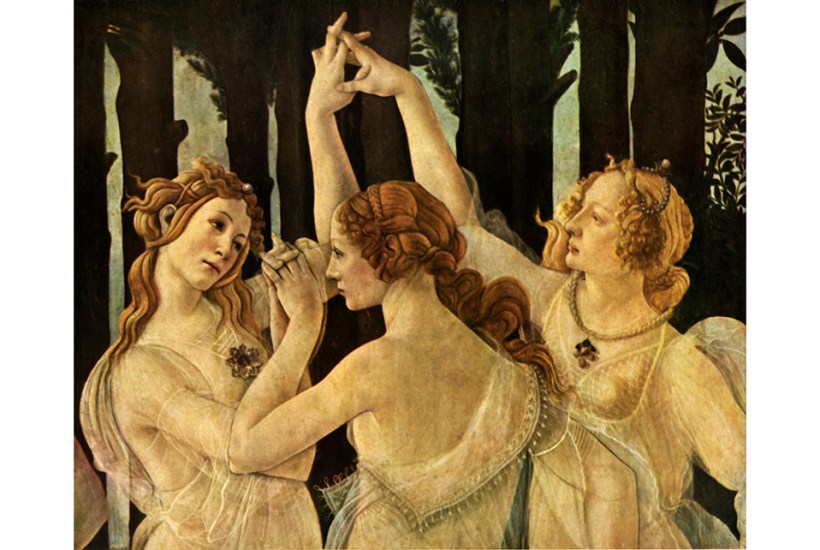The title of Amanda Craig’s enjoyable and provocative ninth novel might conjure the dancing trio in Botticelli’s ‘Primavera’ (which we visit in the book, set in Tuscany); but the three graces here are Ruth, Diana and Marta, elderly expat friends who meet for weekly gossips over coffee, ‘united by age, exile, the love of dogs and their disinclination to discuss their infirmities’.
Already a subscriber? Log in
Subscribe for just $2 a week
Try a month of The Spectator Australia absolutely free and without commitment. Not only that but – if you choose to continue – you’ll pay just $2 a week for your first year.
- Unlimited access to spectator.com.au and app
- The weekly edition on the Spectator Australia app
- Spectator podcasts and newsletters
- Full access to spectator.co.uk
Or
Unlock this article
You might disagree with half of it, but you’ll enjoy reading all of it. Try your first month for free, then just $2 a week for the remainder of your first year.









Comments
Don't miss out
Join the conversation with other Spectator Australia readers. Subscribe to leave a comment.
SUBSCRIBEAlready a subscriber? Log in